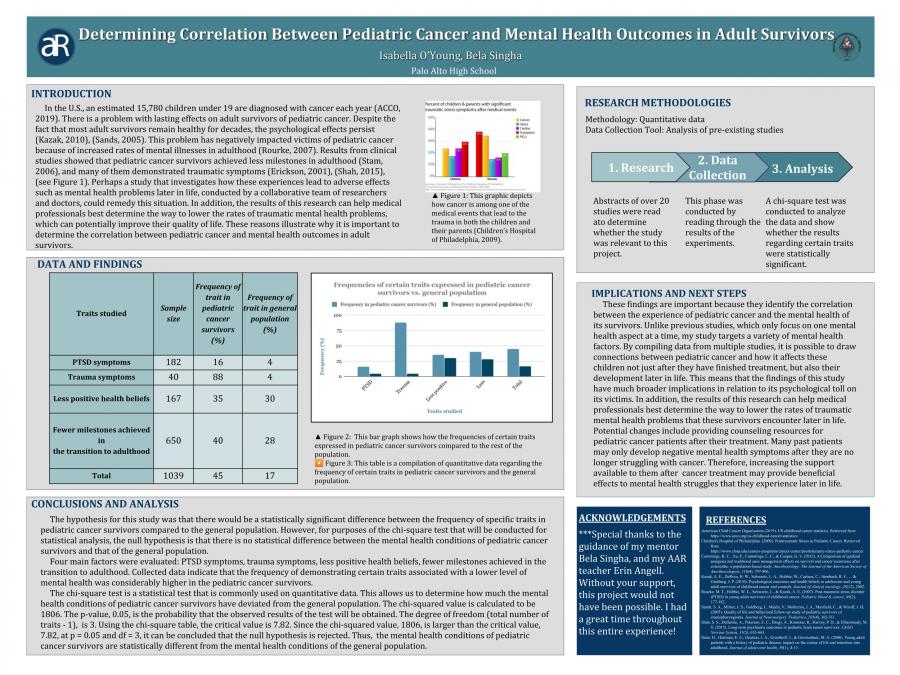Summary
In the U.S., an estimated 15,780 children under 19 are diagnosed with cancer each year, and there is a problem with lasting effects on survivors of pediatric cancer. Despite the fact that most survivors remain healthy for decades, the mental and psychological effects of past treatment and experience still exist. This problem has negatively impacted victims of pediatric cancer because of increased rates of mental illnesses as they enter adulthood, including depression. By investigating the factors leading to this serious issue all around the world, my research can identify the link between certain types of pediatric cancer treatment and mental health issues, both of which are prominent in our modern society. In addition, the results of this research can help medical professionals best determine the way to lower the rates of traumatic mental health problems that these survivors encounter later on, which can potentially improve their quality of life.
Personal Statement
Since I was a kid, I have always been interested in the medical field, particularly cancer. After developing an interest in psychology in high school, I decided to combine the two topic areas in my AAR project. Through investigating the relationship between mental health and pediatric cancer, I gained valuable insight regarding the psychological conditions of pediatric cancer survivors.

